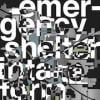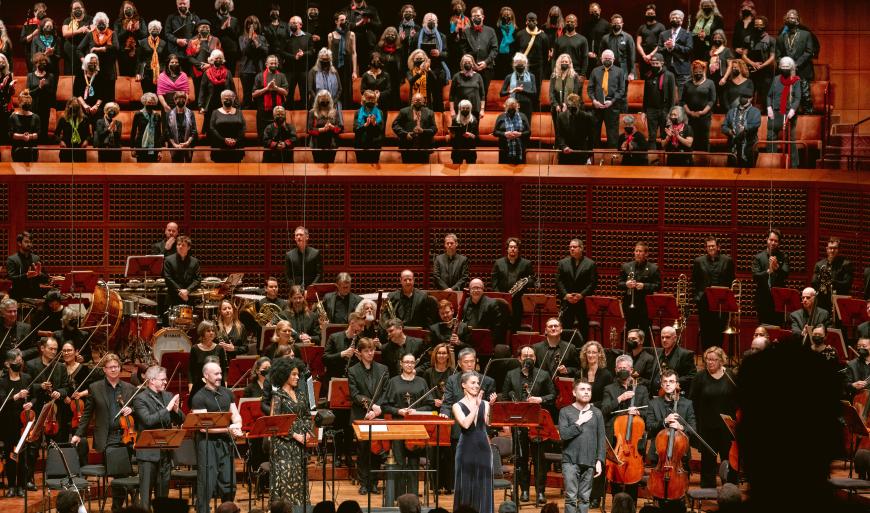
It is no secret that the neighborhood around Davies Symphony Hall has one of the city’s highest concentrations of unhoused people. But patrons of the San Francisco Symphony can seldom engage with this issue inside the walls of the concert hall. Gabriel Kahane’s oratorio emergency shelter intake form, which received its SF Symphony premiere over the weekend, aims to disrupt the insular, privileged world of institutional classical music by dealing with the harrowing reality of homelessness and housing insecurity in the United States, both by accounting for the problem’s roots in fiscal policy and attending to the painful lived experience of those it affects. Kahane clearly set out to seriously challenge his audience, and despite the awkward concert experience — or perhaps because of it — the performance was a powerful success.
Emergency shelter intake form is a composition for mezzo-soprano, a “chorus of inconvenient statistics,” and orchestra. The sprawling libretto, written by Kahane himself, is based on a bureaucratic document from which the piece derives its name. But Kahane supplements the dry text of the intake form with poignant reflections on the emotional ramifications of homelessness: “Have you ever been evicted? … If yes, how did it feel to hold the pink paper / As you stood in the melting snow / Where men in overalls tossed your belongings … Onto the pavement?”
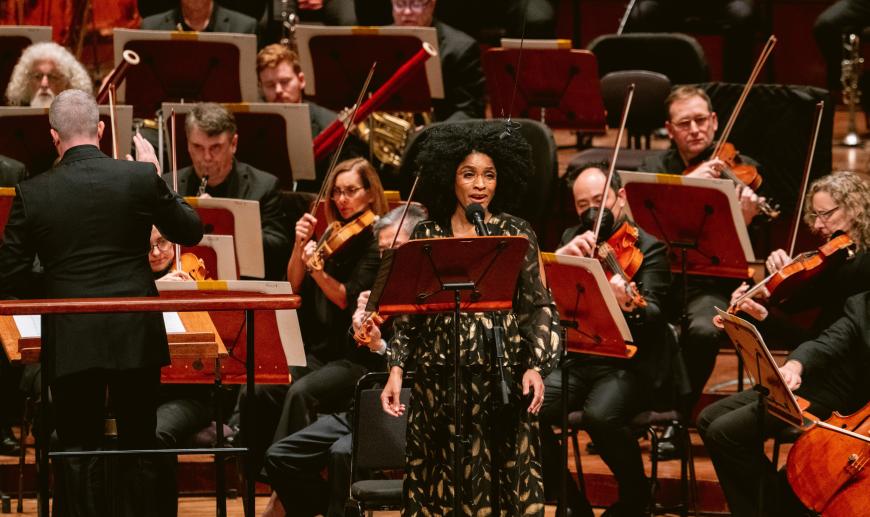
This text was declaimed by the luminous mezzo-soprano Alicia Hall Moran, whose voice deftly floated somewhere between opera, musical theater, and pop crooning. The three-person chorus, comprising Kahane, Holcombe Waller, and Kristen Toedtman, provided framing: “We do not wish to make any of you feel shitty. ... Nevertheless … We must from time to time / Dispense with politesse / And share with you / The cold hard facts.”
Some of these facts came in the 11th movement, an extended aria sung by Kahane titled “A brief history of the subprime mortgage loan crisis.” Kahane might be the first vocalist to intone the words “collateralized debt obligation” to an audience at Davies, and his social critique was incisive, in part due to his astute musical sensitivity. He is equally at home in indie-pop songwriting as orchestral composition, and he put this chameleon-like virtuosity to potent use here.
Most of the oratorio is composed in a darkly post-minimalist style, with the orchestra providing a rustling, undulating accompaniment to Moran’s sinuous vocal lines. But in several movements — Kahane’s excursus on the mortgage crisis and a scathing satire of “not in my backyard” attitudes sung by Waller — the music slips into much more accessible pop pastiche.
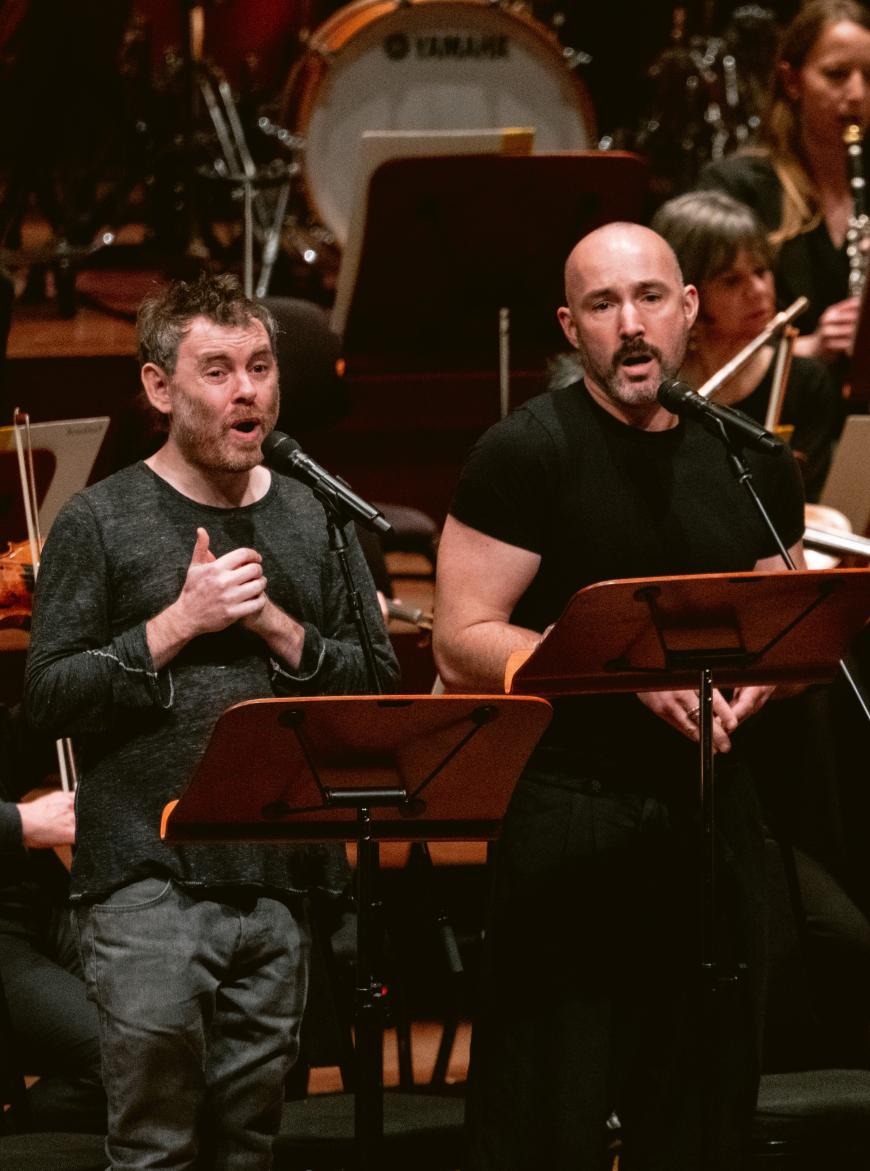
Waller’s song, accompanied by an accordion and Kahane’s fingerpicking guitar, would have been a lovely country-inflected ditty were it not for the chillingly accusatory lyrics: “We’ve always loved the unwashed masses ... So long as we can’t see or hear them / ’Cause the truth is that we fear them.” The later movement sung by Kahane pillories the reckless optimism leading to the housing market crash in a Dixieland-inspired showtune. Tapping their toes to this ingratiating music, audience members are forced to consider their own willingness to take refuge in the comforts of privileged life. Provocatively, Kahane asks how our desire for aesthetic pleasure can work against our political ideals. Although the lyrics were full of scathing zingers, the audience hardly laughed; it’s unclear if this was due to stiff concert etiquette or if the jokes hit too close to home.
It is natural that a piece like Kahane’s would invite skepticism: Does the performance reflect a genuine commitment to the problem of homelessness, or is it cynical tokenism designed to make wealthy individuals feel better before returning to the status quo? Although we can’t expect this performance to change the material conditions it describes, Kahane and the SF Symphony did everything possible to treat the subject responsibly. They hosted the local nonprofits Compass Family Services, HomeRise, and San Francisco SafeHouse to share information about their services and collect donations before the performance; representatives from the organizations told me that they had longstanding collaborations with the Symphony, including fundraising projects and donations of tickets to their residents. And Kahane included the Community Music Center Choir and Skywatchers Ensemble, a community chorus of formerly unhoused residents of the Tenderloin district, in the final movement of the piece, “Thank you for completing this form.” Although it would have been desirable to incorporate the chorus throughout the piece, its inclusion here was a welcome addition.
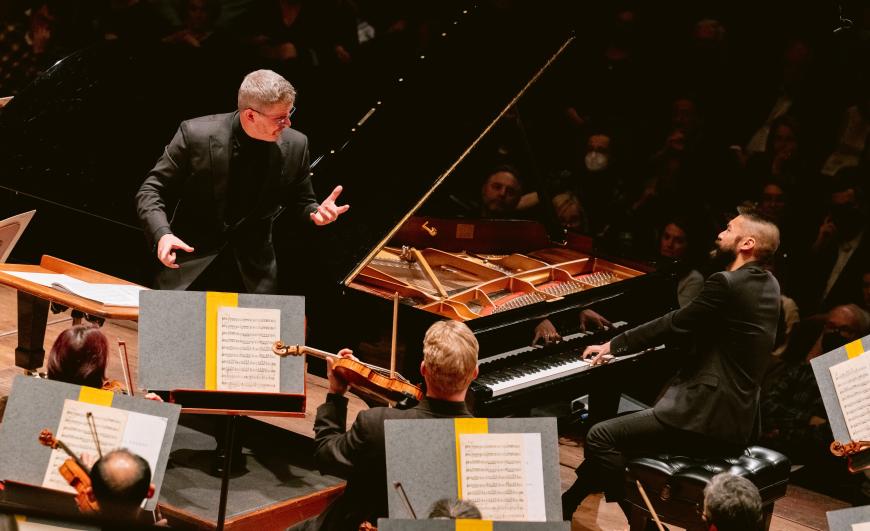
The evening’s program kicked off with a fiery performance of George Gershwin’s Piano Concerto in F, with the maverick pianist Conrad Tao as soloist. Conductor Edwin Outwater led the orchestra sensitively, coaxing a rich, energetic sound from the musicians, and Tao’s playing was suffused with a piquant, sensual buzz. The programming choice was slightly fraught, Gershwin being a composer whose signature sound involved the domestication of Black American styles into concert music, but it nevertheless served as a pleasant amuse-bouche before the evening’s more challenging fare.




